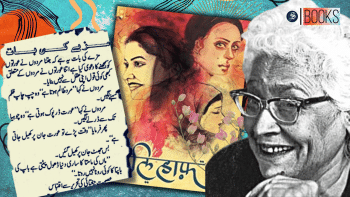Jhumpa Lahiri’s Italian renovations

Jhumpa Lahiri has always been the rare author whose prowess in the art of the short-story far surpassed her novelistic talents. Her Pulitzer prize winning debut, The Interpreter of Maladies (Houghton Mifflin, 1999) had set the stage for an illustrious literary career, including her 2008 sophomore collection Unaccustomed Earth (which I considered, albeit controversially, better than her debut), and the novels The Namesake (Mariner, 2003) and The Lowland (Knopf, 2013). Since 2015, she has written only in Italian, a language she learned from scratch. This has helped her flee the confines of her usual American settings and mostly Bengali, academic households. Her new collection Roman Stories, too, chronicles the lives of foreigners living in the west, but the American dreams have been replaced with European longings and affairs. The Bangalis, at least overtly, are out of the picture altogether.
Indeed, it isn't until we reach the penultimate story, "Notes," when an 'alna' (wooden rack) is mentioned in passing. The story of a widowed mother living alone and working for a tailor after her children grow up and move out, "Notes" is most reminiscent of her previous work. In Todd Portnowitz's translation (he had translated three of the stories here, with the rest being done by Lahiri herself), characters seem more resourceful when dealing with European racism. The narrator of "Notes" resorts to old habits when faced with schoolboys at her sons' old school sending her notes to leave. In "Well Lit House," where a family is pressured out of government housing because of their foreignness, the wife's refusal to weather the humiliation leads her to leave the country altogether, throwing her husband into a state of misery. As the man walks around outside, his helplessness colours all his interaction with the city—a conversation of melancholy that reverberates through the story's cityscape.
Perhaps the strongest story in this collection (this, too, a Portnowitz collaboration) is "P's Parties," a sublime piece of fiction whose strength rivals most of her full-length works. In "P's Parties" the narrator finds himself enamoured with L., a woman at a party of his wife's friend, P. The parties thrown by P. are regular occurrences, full of people from outside the city. The narrator muses, "They were so different from the group I belonged to: those of us born and raised in Rome, who bemoaned the city's alarming decline but could never leave it behind. The type of people for whom just moving to a new neighbourhood in their 30s…was the equivalent of departure, displacement, complete rupture."
His obsession with L. stems from a display of parental distress, of still worrying over one's children even when they are older and may not need worrying. The narrator is alienated by his wife's nonchalance regarding their son heading to another continent to study. When we see them visiting this son in America, who now has a new girlfriend, the narrator's melancholy is obvious. "He was thriving in this new city", he mentions, referring to the loud American restaurants and the "bizarre and expensive" food. The scene lays bare Lahiri's transformation. Her characters now convey a European distaste of the new world more so than an aspiration to be at one with them.
Roman Stories ends with a story titled "Dante Alighieri," a memorable story of a young woman reminiscing the various turns and mistakes her life takes her through. The earlier portions of the story bring back a rare glimpse of the American in Lahiri. We see the narrator as a teenager feeling guilty for desiring her best friend's boyfriend, who has written her a letter signed as Dante. "The handwriting itself felt like a dense cage around the heart of that poor boy", the narrator says, a line that would not feel out of place in a story such as "Hell-Heaven" from her Unaccustomed Earth collection.
What Roman Stories is not are sketches by an author trying out a new language. Even in the weaker stories, such as "The Steps," Jhumpa Lahiri finds a sliver of the human condition to shed light on. The tendency for the occasional bland description (the women seem to always be slender or thin), too, does not take away from the power of her stories.
Whether or not her writing in Italian surpasses the reputation of her work in English, one can say with good authority that Roman Stories will remain a significant achievement in her oeuvre.
Shahriar Shaams has written for Dhaka Tribune, The Business Standard, and The Daily Star. He is nonfiction editor at Clinch, a martial-arts themed literary journal. Find him on X: @shahriarshaams.

 For all latest news, follow The Daily Star's Google News channel.
For all latest news, follow The Daily Star's Google News channel. 








Comments